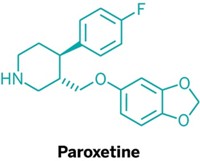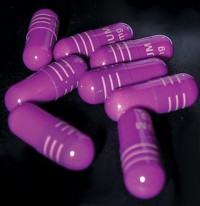Advertisement
Grab your lab coat. Let's get started
Welcome!
Welcome!
Create an account below to get 6 C&EN articles per month, receive newsletters and more - all free.
It seems this is your first time logging in online. Please enter the following information to continue.
As an ACS member you automatically get access to this site. All we need is few more details to create your reading experience.
Not you? Sign in with a different account.
Not you? Sign in with a different account.
ERROR 1
ERROR 1
ERROR 2
ERROR 2
ERROR 2
ERROR 2
ERROR 2
Password and Confirm password must match.
If you have an ACS member number, please enter it here so we can link this account to your membership. (optional)
ERROR 2
ACS values your privacy. By submitting your information, you are gaining access to C&EN and subscribing to our weekly newsletter. We use the information you provide to make your reading experience better, and we will never sell your data to third party members.
Pharmaceuticals
Teva Settles Pay-For-Delay Case
Antitrust: Drugmaker will pay $1.2 billion to refund buyers who paid too much for Provigil
by Glenn Hess
June 8, 2015
| A version of this story appeared in
Volume 93, Issue 23

Teva Pharmaceutical Industries has agreed to pay $1.2 billion to settle a Federal Trade Commission allegation that its Cephalon subsidiary illegally blocked the launch of low-cost generic versions of its blockbuster sleep-disorder drug Provigil.
This is the first FTC case to be resolved since the Supreme Court ruled in 2013 in FTC v. Actavis that patent settlements in which a brand-name drugmaker pays a generic maker to delay entering the market could be subject to antitrust challenges.
“The FTC has been very committed to putting a stop to these kinds of deals,” says FTC Chairwoman Edith Ramirez. “There’s no question that pharmaceutical companies have gotten very creative in the way they try to get around the antitrust laws. We’re going to continue our fight.”
The settlement stems from a 2008 FTC lawsuit, which charged that Cephalon unlawfully protected its Provigil monopoly through a series of agreements with four generic drug manufacturers in late 2005 and early 2006.
FTC alleged that Cephalon sued the generic drug makers for patent infringement and later paid them more than $300 million in total to drop their patent challenges and forgo marketing their generic products for six years, until April 2012. Were it not for the deals, the drug would have faced competition in 2006, reducing costs for consumers.
Under the settlement, Teva will pay $1.2 billion to compensate purchasers, including drug wholesalers, pharmacies, and insurers, who overpaid for Provigil. FTC will allow Teva to count its settlement with direct purchasers in related litigation as a credit toward the total amount paid to the commission.
Israel-based Teva also agreed not to enter into any similar patent settlements in its future U.S. operations.
Teva notes that the deals that prompted the FTC inquiry occurred years before it purchased Cephalon in 2011. “We are pleased to have reached an agreement with the government. In relation to the consent decree, Teva believes it is the right path for our company, for the industry, and for the patients we serve,” Teva says.





Join the conversation
Contact the reporter
Submit a Letter to the Editor for publication
Engage with us on Twitter